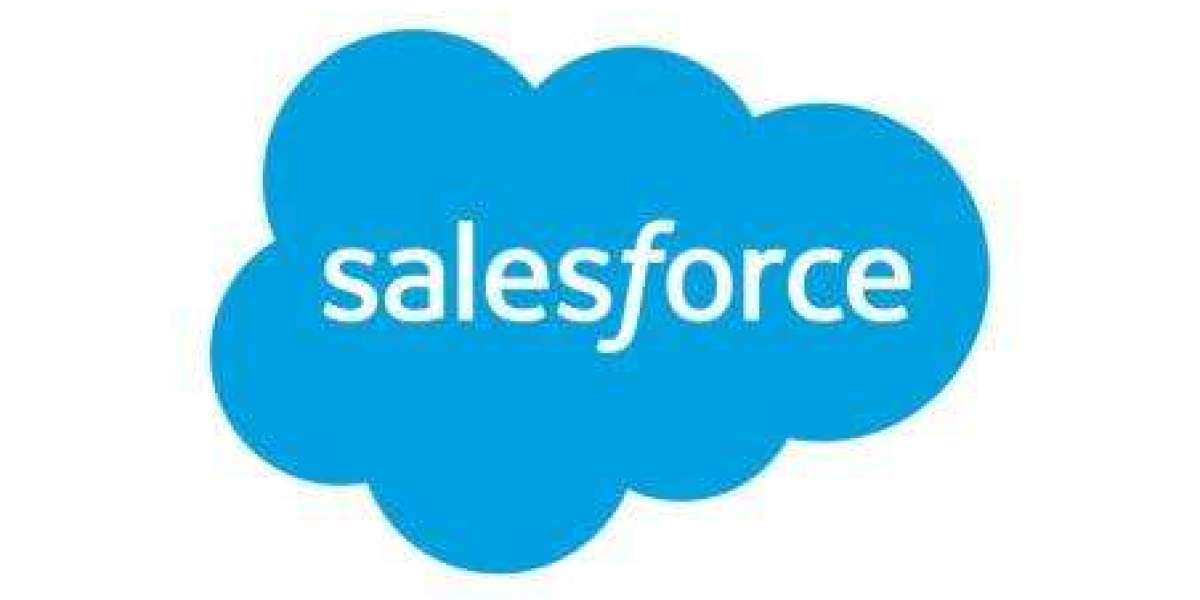In 2025, global brands face the dual challenge of delivering highly personalized customer experiences while scaling operations across diverse markets. Salesforce Experience Cloud, a leading digital experience platform, empowers organizations to achieve this balance through robust customization capabilities. By leveraging its flexible tools, seamless integrations, and AI-driven features, brands can create tailored portals, communities, and mobile apps that resonate with audiences worldwide. This article explores how global brands are harnessing Salesforce Experience Cloud customization to drive engagement, streamline operations, and deliver measurable results, with a focus on key strategies, tools, and real-world applications.
The Power of Salesforce Experience Cloud Customization
Salesforce Experience Cloud, part of the Customer 360 ecosystem, enables brands to build branded digital experiences, including customer portals, partner communities, and employee hubs. Its customization capabilities—powered by Experience Builder, Lightning Components, and Salesforce Einstein AI—allow businesses to create intuitive, scalable, and secure platforms tailored to specific audience needs. In 2025, with over 3,000 global brands using Experience Cloud to manage customer interactions, the platform’s ability to deliver personalization at scale is a game-changer.
Customization in Experience Cloud goes beyond aesthetics. It involves tailoring user interfaces, workflows, and data integrations to align with brand identity, regional requirements, and customer expectations. Features like Mobile Publisher, multilingual support, and real-time analytics enable brands to engage diverse audiences while maintaining operational efficiency. Below, we explore how global brands are leveraging Salesforce Experience Cloud customization, highlighting key strategies and examples across industries.
Strategies for Effective Salesforce Experience Cloud Customization
1. Leveraging Experience Builder for Branded Interfaces
Experience Builder is the cornerstone of Salesforce Experience Cloud customization, allowing brands to create visually consistent, responsive interfaces without extensive coding. Global brands use drag-and-drop tools to design portals that reflect their visual identity, incorporating custom themes, fonts, and layouts. For instance, a luxury retail brand like LVMH customized its customer portal with Experience Builder to showcase product collections, integrate loyalty programs, and provide personalized recommendations based on user behavior. The platform’s responsive design ensured seamless access across devices, boosting mobile engagement by 40%.
2. Utilizing Lightning Components for Advanced Functionality
Lightning Components enable brands to build custom features and integrations tailored to specific business needs. For example, Coca-Cola, a global beverage leader, used Lightning Components to create a partner portal for distributors. The portal included custom dashboards for tracking inventory, automated order workflows, and real-time chat functionality powered by Service Cloud integration. This customization reduced order processing time by 35% and improved partner satisfaction by enabling seamless collaboration across regions.
3. Harnessing Salesforce Einstein AI for Hyper-Personalization
Salesforce Einstein AI enhances personalization by analyzing user data to deliver tailored content and recommendations. A global financial services firm, HSBC, implemented a customer portal with Einstein AI to provide personalized investment advice based on user profiles, transaction history, and market trends. The AI-driven portal increased customer engagement by 30% and boosted cross-selling opportunities by delivering targeted product suggestions. Einstein’s predictive analytics also helped HSBC anticipate customer needs, reducing churn by 15%.
4. Integrating with Salesforce Ecosystem for Unified Data
Global brands rely on Experience Cloud’s integration with Sales, Service, and Marketing Clouds to create a unified data ecosystem. For instance, Unilever customized its B2B partner portal to integrate with Sales Cloud for lead management and Marketing Cloud for campaign tracking. This allowed Unilever to deliver personalized promotions to partners based on real-time sales data, increasing partner revenue by 25%. The integration ensured data consistency across regions, streamlining operations for Unilever’s global supply chain.
5. Supporting Multilingual and Regional Customization
To cater to diverse markets, Experience Cloud supports multilingual content and regional customization. Nike, a global sportswear brand, implemented a customer community with localized interfaces for over 20 languages. Using Experience Cloud’s translation workbench, Nike customized content, promotions, and support resources for regional audiences, resulting in a 50% increase in international user engagement. The platform’s geolocation features also enabled location-specific product recommendations, enhancing the shopping experience.
6. Ensuring Security and Compliance with Salesforce Shield
Global brands operating in regulated industries like finance and healthcare rely on Salesforce Shield for secure customization. A healthcare provider, Kaiser Permanente, customized its patient portal with Experience Cloud, using Shield to ensure HIPAA compliance. The portal included secure messaging, appointment scheduling, and personalized health resources, all protected by advanced encryption and access controls. This customization improved patient satisfaction by 20% while maintaining data security across its global network.
Real-World Examples of Salesforce Experience Cloud Customization
Example 1: Adidas – Personalized Customer Community
Industry: Retail
Challenge: Adidas needed a scalable platform to engage its global customer base with personalized content and seamless e-commerce integration.
Customization: Adidas partnered with Salesforce to build a customer community using Experience Cloud. The platform was customized with Experience Builder to reflect Adidas’ bold brand identity, featuring dynamic product showcases and interactive fitness challenges. Lightning Components powered custom features like a virtual try-on tool and integration with Marketing Cloud for personalized email campaigns. Einstein AI analyzed customer preferences to recommend products, while Mobile Publisher created a branded mobile app.
Results: The customized community increased online sales by 45% and boosted customer retention by 30%. The mobile app drove a 25% increase in mobile purchases, with 70% of users engaging with personalized content. Adidas’ ability to deliver tailored experiences at scale strengthened its position as a global retail leader.
Example 2: Accenture – Global Partner Portal
Industry: Professional Services
Challenge: Accenture sought to streamline collaboration with its global network of partners, consultants, and clients while maintaining brand consistency.
Customization: Accenture implemented a partner portal using Experience Cloud, customized with Lightning Components for real-time project tracking, document sharing, and task automation. Integration with Service Cloud enabled seamless case management, while Tableau CRM provided analytics dashboards for performance insights. The portal supported multilingual content for 40+ countries, ensuring accessibility for diverse stakeholders.
Results: The customized portal reduced project coordination time by 50% and improved partner satisfaction by 35%. Real-time analytics helped Accenture optimize resource allocation, saving $2 million annually. The scalable design allowed Accenture to onboard new partners without system overhauls.
Example 3: Médecins Sans Frontières – Donor Engagement Platform
Industry: Nonprofit
Challenge: Médecins Sans Frontières (MSF) needed a platform to engage donors globally while providing transparent campaign updates.
Customization: MSF customized an Experience Cloud donor portal with Experience Builder to create a branded interface showcasing real-time campaign impact. Lightning Components enabled features like donation tracking and volunteer sign-ups, while integration with Marketing Cloud delivered personalized thank-you messages. Einstein AI segmented donors based on giving history, enabling targeted fundraising campaigns. The platform supported 15 languages to cater to global audiences.
Results: The customized portal increased donor retention by 20% and boosted online donations by 30%. Transparent campaign updates improved trust, with 80% of donors engaging with impact reports. MSF’s ability to personalize at scale strengthened its global fundraising efforts.
Best Practices for Salesforce Experience Cloud Customization
To achieve personalization at scale, global brands should adopt these best practices:
Define Audience Segments: Identify user personas and tailor experiences to their needs, as Adidas did with its customer community.
Prioritize Scalability: Design solutions that can scale across regions and user volumes, as seen in Accenture’s partner portal.
Leverage AI and Analytics: Use Einstein AI and Tableau CRM to deliver personalized content and actionable insights, as demonstrated by HSBC and MSF.
Engage Expert Partners: Collaborate with Salesforce consultants to ensure seamless customization and integration, as all examples above did.
Test and Iterate: Continuously test user experiences and gather feedback to refine customizations, ensuring long-term success.
Focus on Mobile and Multilingual Support: Optimize for mobile devices and localize content to engage global audiences, as Nike and MSF achieved.
Challenges and Solutions in Customization
While Salesforce Experience Cloud customization offers immense potential, global brands may face challenges:
Complexity of Integration: Integrating with legacy systems can be complex. Solution: Use Salesforce’s prebuilt connectors and work with certified consultants to streamline integration.
Cost of Customization: Advanced customizations can be resource-intensive. Solution: Prioritize high-impact features and leverage reusable Lightning Components to reduce costs.
User Adoption: Global audiences may resist new platforms. Solution: Invest in user training and intuitive design to drive adoption, as seen in Adidas’ community.
Conclusion
In 2025, Salesforce Experience Cloud customization empowers global brands to deliver personalized experiences at scale, transforming customer, partner, and employee interactions. By leveraging tools like Experience Builder, Lightning Components, and Einstein AI, brands like Adidas, Accenture, and Médecins Sans Frontières have created tailored, scalable, and secure digital platforms that drive engagement and efficiency. As global markets become increasingly competitive, Salesforce Experience Cloud’s customization capabilities offer a strategic advantage, enabling brands to connect with audiences in meaningful ways while maintaining operational excellence. By adopting best practices and addressing challenges, organizations can unlock the full potential of Experience Cloud to achieve lasting success.














